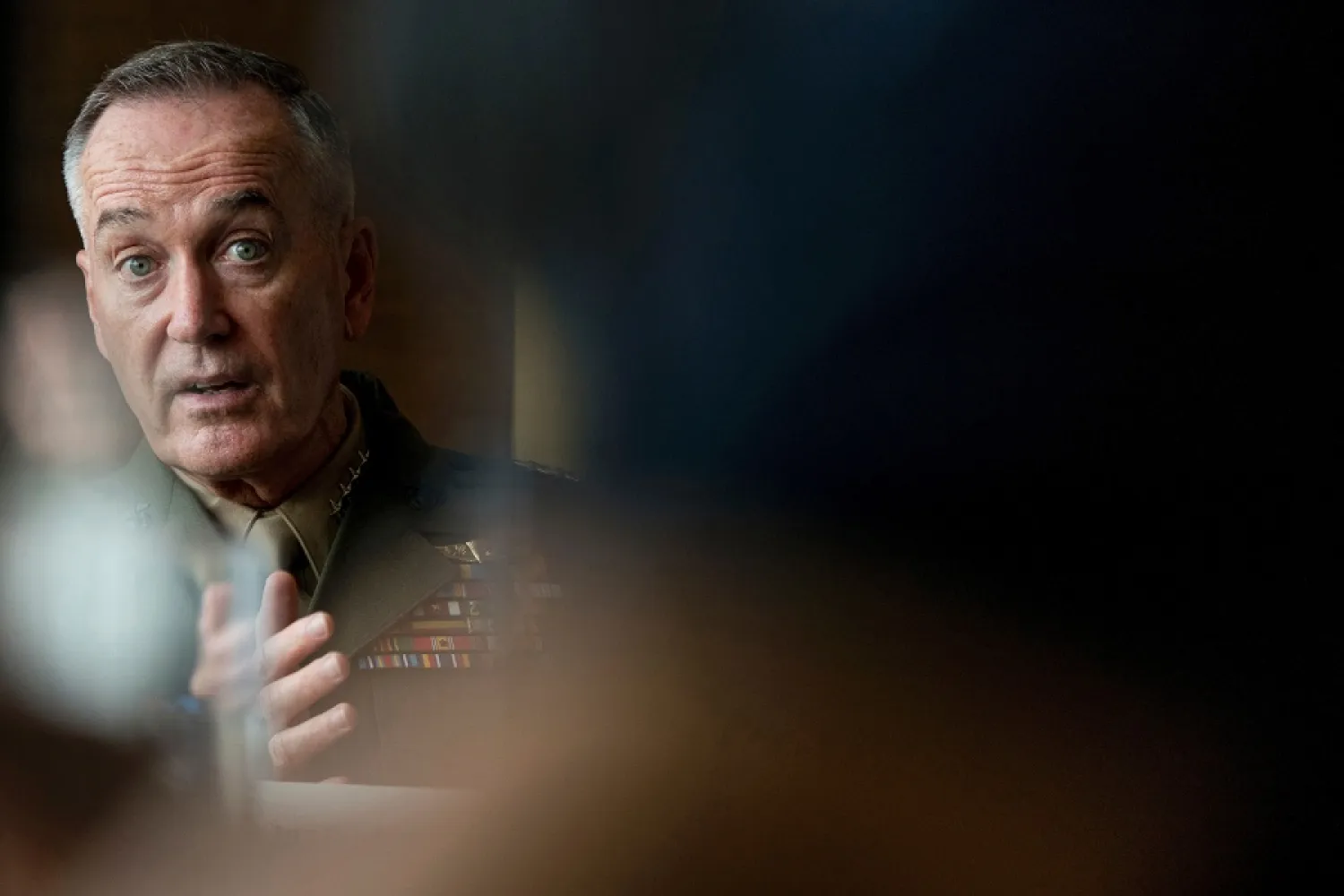Washington’s most senior military officer warned Pyongyang on Friday that an attack against Japan would be the same as an attack as the United States.
"I think we made it clear to North Korea and anyone else in the region that an attack on one is an attack on both of us," Joseph Dunford, the chairman of the Joint Chiefs of Staff, said in Tokyo.
Dunford and his Japanese counterpart Katsutoshi Kawano agreed to work together to strengthen missile defense systems. The US general is on the last stop of an Asia tour that took him to China and South Korea and has been dominated by talk of the North Korean threat.
During a separate meeting Friday with Prime Minister Shinzo Abe, Dunford called the Japan-US military relationship "rock solid".
Abe told Dunford: "We firmly demonstrated the strength of the Japan-US alliance at a time when the North Korea situation has intensified."
North Korea has threatened to test-fire missiles that would fly over Japan and land in waters off the US territory of Guam. The US is treaty-bound to defend Japan from outside attacks.
Tokyo remains on alert against potential military provocations by Pyongyang after North Korea threatened to fire missiles towards Guam, which would have flown over Japan.
Japan frequently demands -- and receives -- US reassurances over its commitment to defend its ally.
The US and Japan, adversaries in World War II, have forged a decades-long defense alliance and the US stations tens of thousands of troops in the country.
During his visit to China, Dunford said peace with North Korea is a "possibility", but warned the US has "credible, viable military options" for dealing with the errant regime.
The US and North Korea have been engaged in heated verbal sparring since President Donald Trump warned Pyongyang that it faced "fire and fury" if it continued to threaten the US and other countries with its nuclear weapons and ballistic missiles.
North Korea responded by threatening to aim a missile at the American territory Guam, though later said the operation was suspended.
Meanwhile, all eyes will be on an annual war game in South Korea next week that could send tensions spiraling back upwards, analysts say.
The North's reaction to the "Ulchi Freedom Guardian" (UFG) joint US-South Korean military exercise that starts Monday will be key to determining what happens next.
The annual drills -- described as defensive and named after a general who protected an ancient Korean kingdom from Chinese invaders -- will involve about 50,000 South Korean and 17,500 US troops, Seoul's defense ministry said Friday.
But Pyongyang views them as a highly provocative rehearsal for an invasion of its own territory, and threatens strong military counteraction each year.
North Korea has repeatedly called for an end to large-scale joint military exercises between the allies in exchange for a freeze on its nuclear and missile programs.
On Friday, North Korea's top state newspaper gave the South's President Moon Jae-In a "fail" grade for his first 100 days in office, dismissing his proffered olive branches as "hypocrisy".
Moon, elected to replace impeached president Park Geun-Hye, came into office in May and has since had to deal with tensions over the North's missile and nuclear programs.
At a briefing Thursday to mark his 100th day in office, Moon insisted there will be no second Korean war but urged the North to stop further nuclear and missile tests, warning Pyongyang to end its "dangerous gamble".
The Rodong Sinmun, the official mouthpiece of the ruling Workers' Party, responded Friday with a withering commentary, saying that the performance sheet for Moon's 100 days was "poor and very disappointing".
Relations between the two were "an absolute fail", it added, saying that while Moon spoke of dialogue and implementing North-South agreements, his actions moved in the opposite direction.
"The south's power holder says he is pushing for sanctions and pressure while seeking to open dialogue at the same time. This is an unpardonable plot toeing the US line to suffocate the DPRK," it said, using the abbreviation of the North's official name.
"Dialogue and sanctions simply cannot go together," it asserted.
Moon is enjoying strong ratings in the South, with opinion polls putting his approval figures in the 70s.









